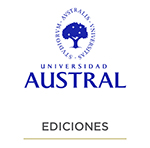The Cassation Appeal in the Preliminary Criminal Investigation: Opening the Instance Following the Chacón Ruling
Abstract
This article examines the modifications introduced to the appeal system within the scope of the preliminary criminal investigation (or preparatory stage) of the Argentine Federal Code of Criminal Procedure, based on the recent Chacón precedent established by the Supreme Court of Justice of the Nation. Through this ruling, the highest court declared the unconstitutionality of the third paragraph of Article 350 of said Code, which attributed to the Federal Courts of Appeals the status of the court of last resort for the purposes of the federal extraordinary appeal. This decision enables the intervention of the Federal Chamber of Criminal Cassation as an intermediate court, allowing it to exhaust its jurisdiction in the final decisions or those equated thereto adopted by the judges of Article 53 of the CPPF in which a federal issue is debated.
Accordingly, this paper examines the appeal regime in force in the new procedural code prior to the Chacón case. Subsequently, the arguments put forth by the Supreme Court and the case law precedents on which it based its decision to invalidate are analyzed. Furthermore, the practical consequences derived from the incorporation of this new additional appeal channel in the preparatory stage of the proceedings are explored, paying particular attention to its articulation with the horizontal control mechanism implemented to ensure the double confirmation, the prohibition of remittal, and the maximum limit of appeals allowed to the prosecutors in the CPPF. Finally, the challenges related to the rules and principles applicable to this novel appeal are identified, proposing a restrictive admissibility criterion that preserves the meaning and purposes of the procedural reform undertaken by the legislator.
Key words: Argentine Federal Criminal Procedure Code, Cassation, Chacón, appeal, challenge, horizontal review, preliminary criminal investigation, court of last resort.
Downloads
References
Ahumada, C. (2021). Luces y sombras del sistema de impugnación en el Código Procesal Penal Federal. En Martínez, S. y González Postigo, L., Etapa de Impugnación (pp. 191-208). Editores del Sur.
Álvarez Agudo, G. y Riva, J. (2013). Régimen Penal de cambios en la operatoria cambiaria y de comercio exterior. Ad Hoc.
Binder, A. (2002). Introducción al Derecho Procesal Penal. Ad Hoc.
Bolos Ingrao, L. E. (28 de abril de 2025). La arbitraria auto-atribución de competencias de la “Corte Suprema” de Casación Penal en el plenario “Ruiz”. Revista Argentina de Teoría Jurídica (RATJ), s/n. https://revistajuridica.utdt.edu/ojs/index.php/ratj/article/view/505/381
Colombo, C. J. (1969). Código Procesal Civil y Comercial de la Nación. Abeledo Perrot.
Daray, R. (2019). Código Procesal Penal Federal. Análisis doctrinal y jurisprudencial (Vol. 1). Hammurabi.
Diario de sesiones de la Cámara de Senadores. (1901).
Donna, E. A. y Días, H. L. (2021). Código Procesal Penal Federal Comentado (Vol. I). Rubinzal Culzoni.
Farrand, M. (1937). The Records of the Federal Convention of 1787 (Tomo II). Yale University Press.
French, S. (2021). La prueba en la instancia de revisión. En Martínez, S. y González Postigo, L., Etapa de Impugnación (pp. 209-220). Editores del Sur.
Garay, A. (2013). La doctrina del precedente en la Corte Suprema. Abeledo Perrot.
García Yhoma, D. y Martínez, S. (2014). La etapa preparatoria en el sistema adversarial. Del Puerto.
Garzón, I. (2018). La etapa preparatoria en el proceso penal acusatorio. En González Postigo, L. y Martínez, S., Investigación y acusación (pp. 59-79). Editores del Sur.
Hairabedián, M. (2021). Código Procesal Penal Federal Comentado. Ad-Hoc.
Honorable Cámara de Diputados de la Nación. (2014a). Diario de Sesiones, Dictámenes, Orden del día 1544 del 01/12/2014.
Honorable Cámara de Diputados de la Nación. (2014b). Diario de Sesiones, 1° era sesión ordinaria de prórroga del 04/12/2014.
Ledesma, A. (2021). Derecho al recurso: su materialización en el CPPF. En Martínez, S. y González Postigo, L., Etapa de Impugnación (pp. 13-29). Editores del Sur.
Lorenzo, L. (2012). Manual de Litigación. Didot.
Lorenzo, L. (2024). Jueces con funciones de revisión. En Sarrabayrouse, E., Lopardo, M. y Pastor Zamboni, M., Código Procesal Penal Federal comentado y concordado (Vol. I, pp. 329-346). Editores del Sur.
Palacio de Caeiro, S. (2002). El Recurso Extraordinario Federal. La Ley .
Pastor, D. (2015). Lineamientos del nuevo Código Procesal Penal de la Nación. Análisis crítico. Hammurabi.
Rabbi-Baldi Cabanillas, R. (2020). Interpretación Jurídica. Astrea.
Sagüés, N. P. (2023). Recurso Extraordinario Federal. Astrea.
Schauer, F. (1987). Precedent. Stanford Law Review, 39(3) 571-605.
Tau Anzoátegui, V. y Martiré, E. (2012). Manual de Historia de las Instituciones Argentinas. Cathedra Jurídica.
Ulivarri Rodi, A. (2023). La cláusula de la diversidad cultural en el Código Procesal Penal Federal. Revista Jurídica Austral, 4(2), 615-650. https://doi.org/10.26422/RJA.2023.0402.uli
Urtubey, R. (2024). La Casación como tribunal intermedio entre las Cámaras Federales y la Corte Suprema: comentario al fallo “Chacón” (CSJN). Rubinzal Culzoni Online, RC D 592/2024.
Zorraquín Becú, R. (1978). Historia del Derecho Argentino (Vol. I). Perrot.
Copyright (c) 2025 Agustín Ulivarri Rodi

This work is licensed under a Creative Commons Attribution-NonCommercial-NoDerivatives 4.0 International License.
This license allows the copy, distribution, exhibition and representation of the work provided authorship is acknowledged and the work is properly quoted. Commercial use of the original work or the generation of derived works are not allowed.
The authors hereby guarantee the right to the first publication of the work to the Revista Jurídica Austral.
















































